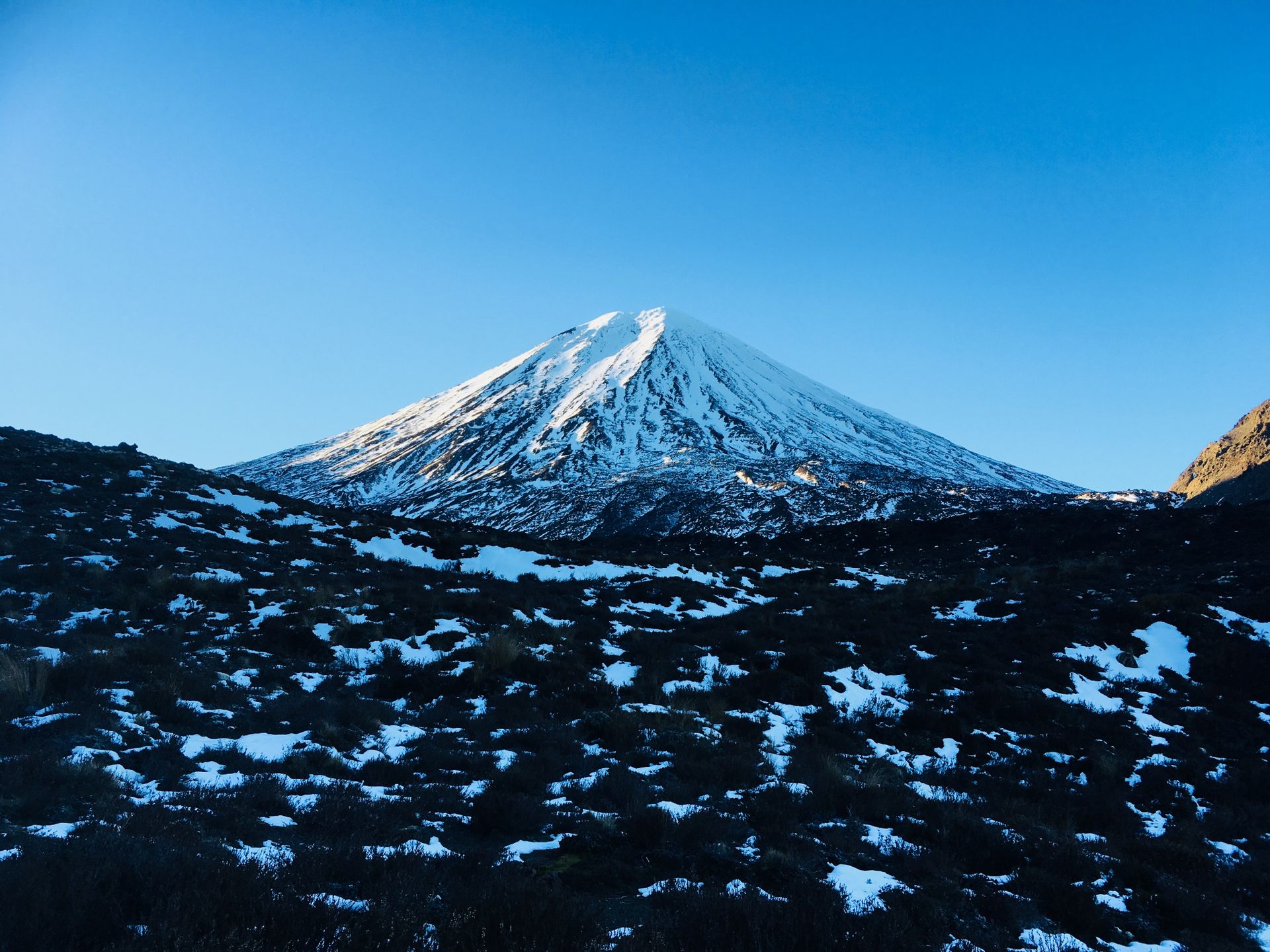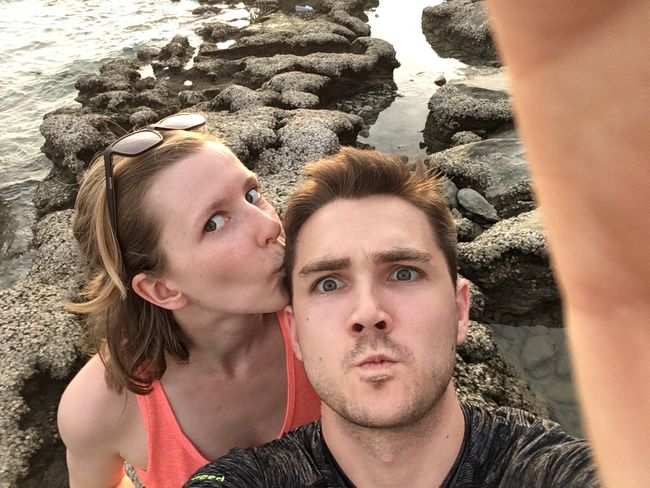Arrival in New Zealand and our way to our own car
Wotae: 10.06.2018
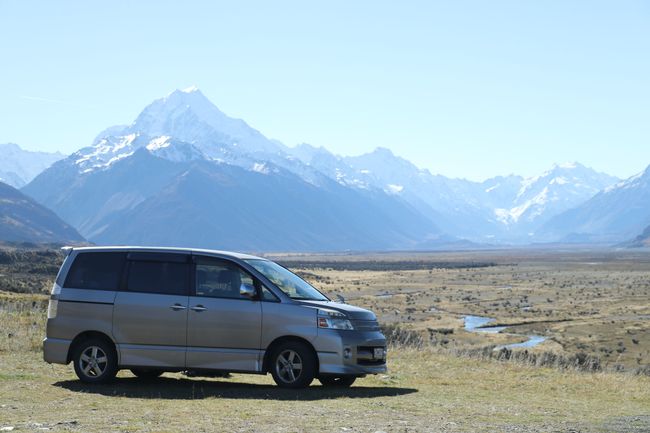
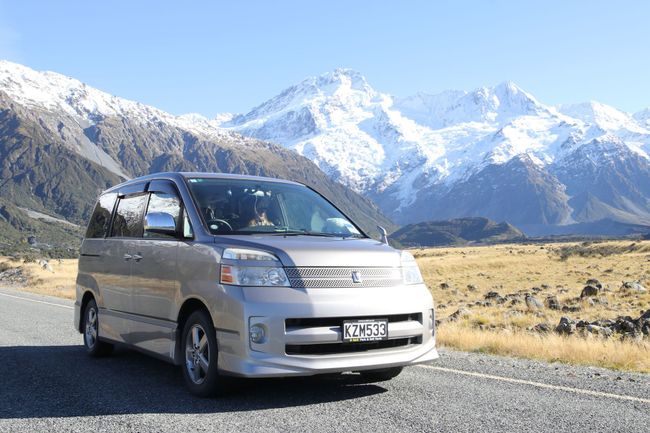
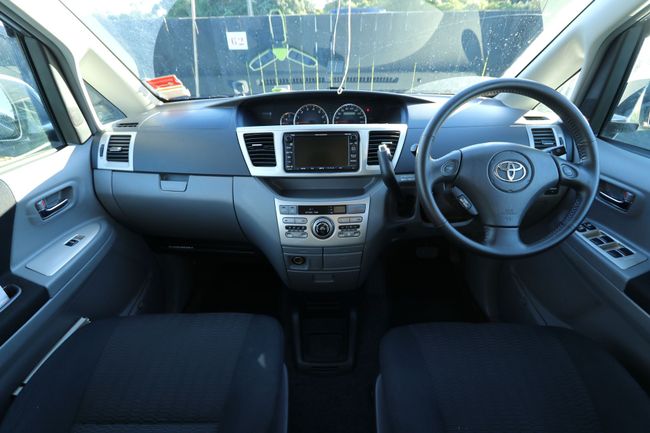
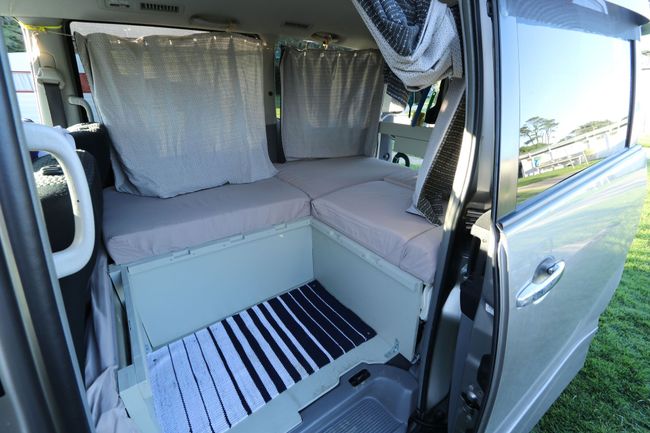
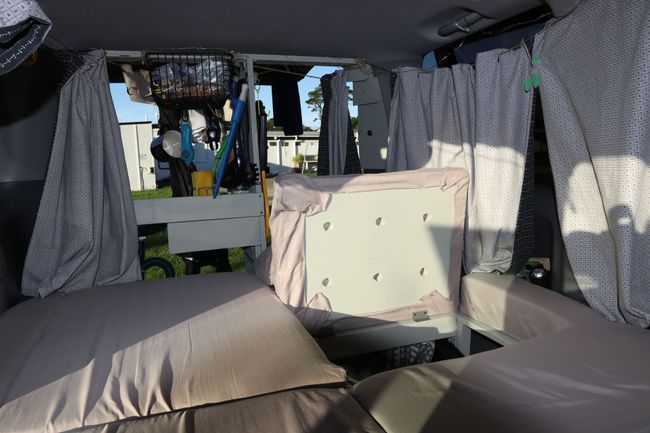
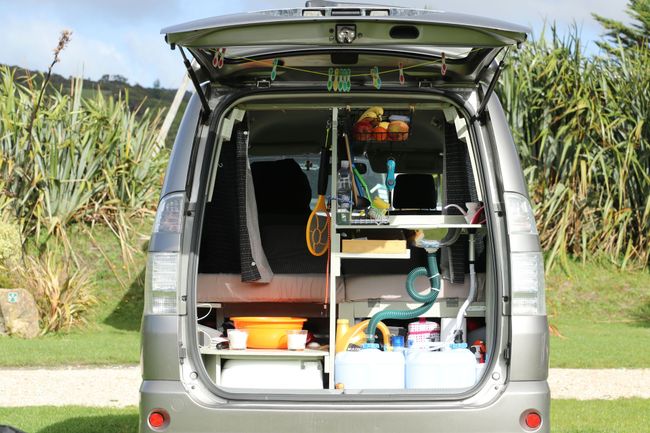
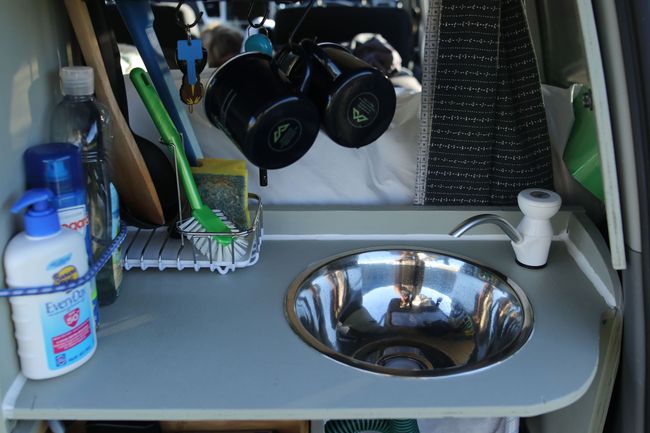
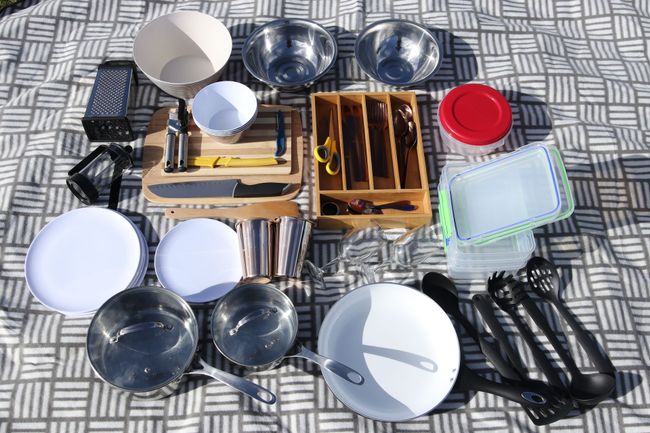
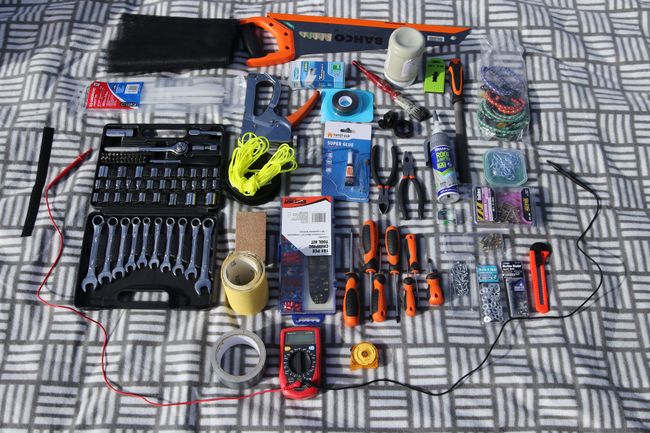
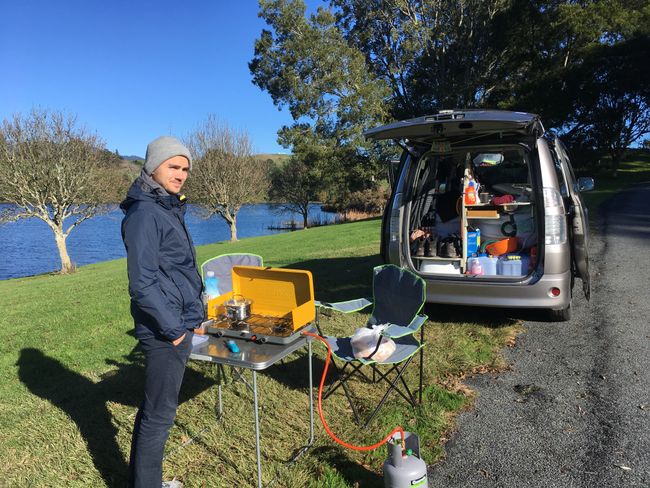
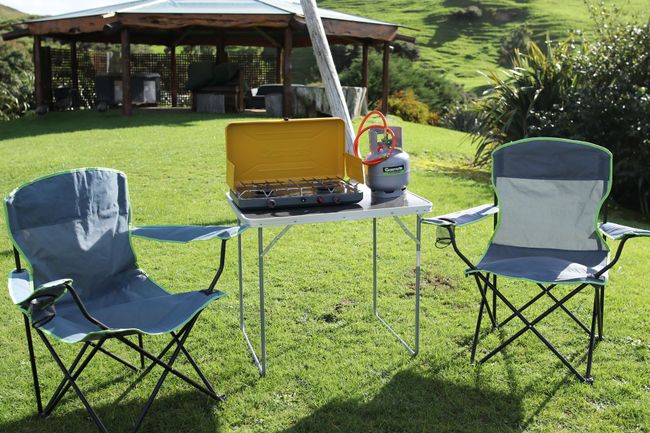
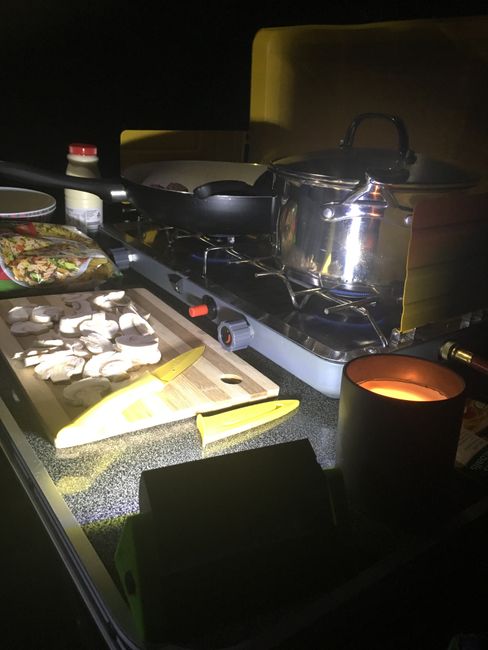
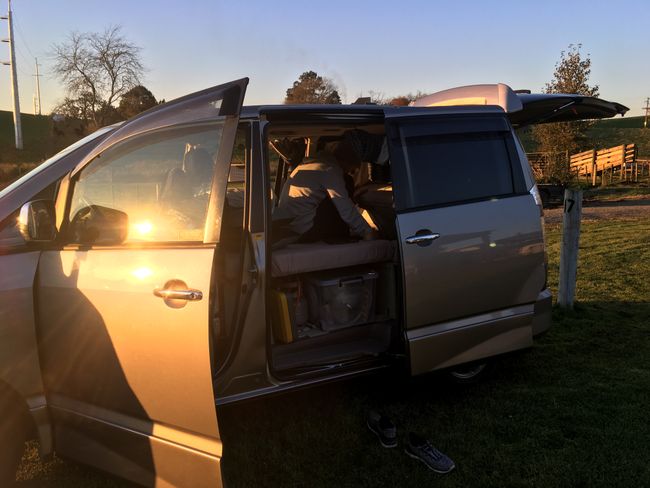
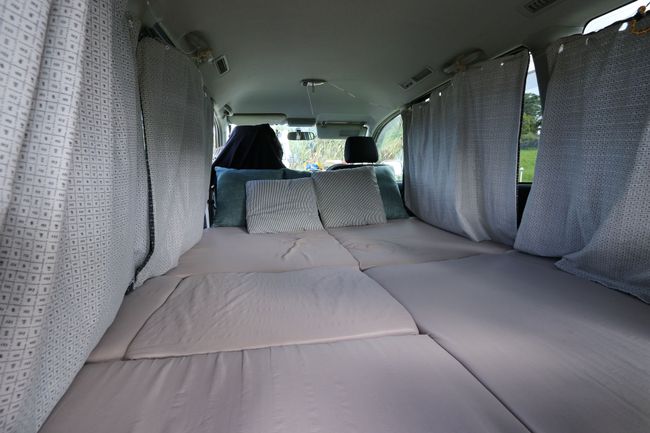
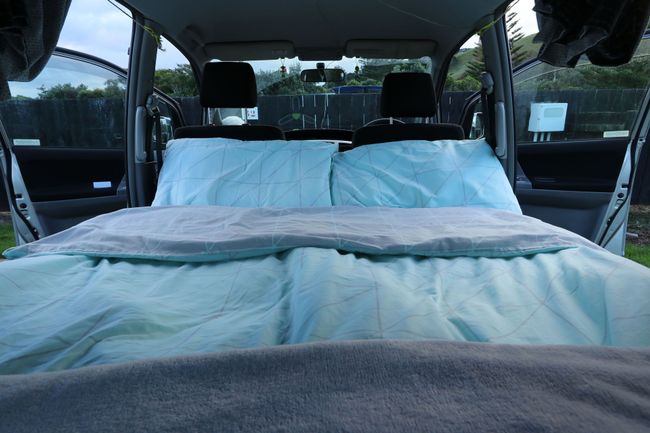
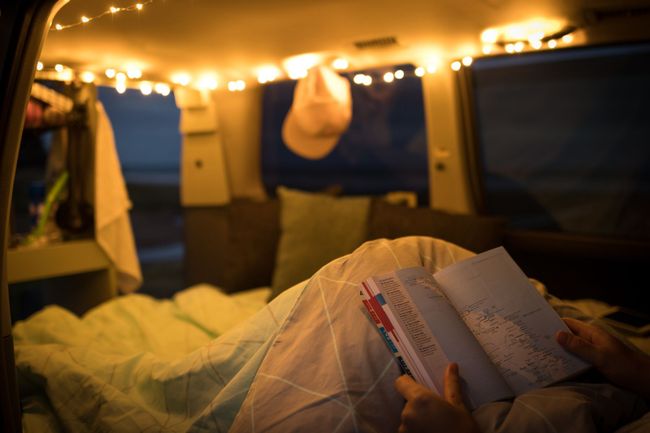
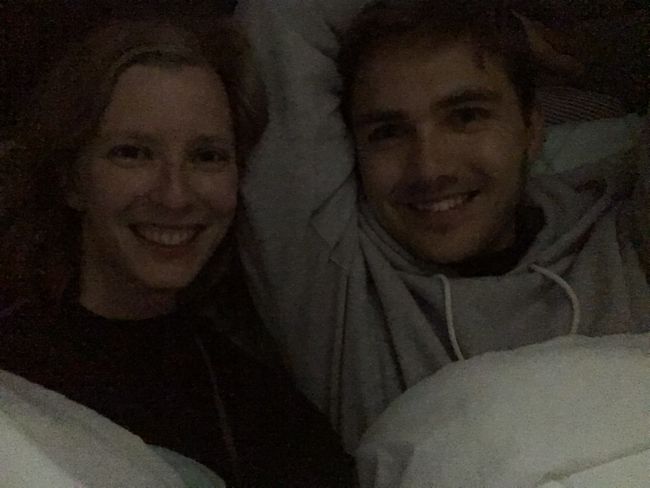
Wɔ Nudɔdɔ na Nyadzɔdzɔgbalẽ
After almost three weeks, we have finally arrived in New Zealand, approximately 18,273 km away from our starting point. The flight here was short and very turbulent, much to Chantall's dismay. But in the end, we landed safely and made our way to our Airbnb where we spent the first few nights. We stayed in a basement apartment with our own bathroom and a small kitchen just for us (the last bit of luxury before our life in the car and on campsites was about to begin). Above us lived a family consisting of a Brit, an American, and two sons growing up in New Zealand. Since we arrived in the middle of the night, we didn't meet them until the next day at a delicious taco evening to which we were invited. But first, there was only one thing on our minds: getting into the oversized bed!
Our plan for the first few days was simple: do as much research as possible and look at as many cars as possible, so we could start driving soon. And that's exactly what we did. We searched through Facebook groups, browse well-known websites, and made lists. Tobi, in particular, did a lot of research on the topic of "buying a car in New Zealand". Our dream car should be self-contained, have few kilometers on it, not have too many dents, and offer a little bit of comfort (after all, we're not 18 anymore ;)). Self-contained in New Zealand basically means that you can sustain yourself in your car. The requirements for this are not difficult: two 24-liter tanks must be present, a chemical toilet must be installed and usable in "bed mode", and a small sink must be installed so that two people can live independently in nature for two days. In practice, this means that we can park almost anywhere, unless there is a specific prohibition. However, when we looked at the first photos, we were already sure that we definitely didn't want to use the chemical toilet, but what needs to be there, needs to be there. There was a large selection of cars with these features and the corresponding certification, but many potential candidates were quite old. Some beautifully converted campervans immediately caught our attention, but our budget quickly and clearly said "nope" to these daydreams. However, even within our set limits, there was still a lot of selection.
After two days, we had contacted about 20 people, were talking to 10 of them, and had already seen 3 cars in person. We had chosen a small parking lot nearby as the meeting point. And so, the car inspections began. At first glance, the first minivan (a white Mitsubishi L300) seemed very practical because of its size, but its general condition made us hesitate. Was this really what we would get for our money? The couple who owned the van were really nice, but it was quickly clear to us that this would not be our car. The second car was a typical backpacker's car: a Toyota Estima with a lot of kilometers and even more dents. Again, it only took one look between us to know that this would not be our car either. A bit disillusioned, we took a short break (and warmed up) and reached out again. Our new plan: look at more expensive cars and negotiate. The condition of the cars was not acceptable for our taste, and we wouldn't feel really comfortable in them. After all, we were on vacation, and three months in a car can be quite long if you don't feel comfortable in it.
We quickly found two really good candidates and were able to inspect the next car that evening. It was a gray Honda StepWGN with relatively few kilometers (240,000 km is still quite low for a backpacker's car) and in good condition. The owner showed us all the important things, and Tobi went through his well-prepared checklist for the third time that day. After a short test drive, it was clear: we could imagine ourselves in this car. However, comfort was a bit lacking: the owner seemed to be a representative of Spartan lifestyle. But that shouldn't be a major criticism. But since good Germans don't buy a car straight away, we wanted to sleep on it for one more night and made our way back to our Airbnb.
When we arrived, there was already an email waiting for us: we could already inspect our second favorite candidate the next day. Since our time in the Airbnb was slowly coming to an end, we chose a typical backpacker hostel for the next few nights until we had completed the car purchase. Now, for the first time, we were in Auckland itself, as our Airbnb was a bit outside the city. We will write more about the city itself towards the end of our trip in New Zealand, as we haven't really seen it yet.
The car we now inspected was a gray Toyota Voxy with approximately 143,000 km and a very promising interior. The couple had flown the car in from Japan at the beginning of their trip and spent a month converting it, showing great attention to detail. In the back of the car, there was a small wooden structure with all the required components for a self-contained car, and in the middle, there were permanently installed mattress-like mats. There was plenty of storage space for various belongings underneath, as well as a half-equipped kitchen including a two-burner camping stove, a folding table, and two camping chairs. The most important thing, if you ask Chantall, were the pillows. Not one, not two, but a total of 7 (!) pillows had been provided by the previous owners... oh, and there was a string of lights. That's all it took to convince Chantall. Tobi focused on the actually important things: the car had few scratches, no dents, drove well, had a well-maintained engine, had semi-automatic transmission, and so on. However, this dream vehicle had one major drawback: it was priced well above our original goal. However, we quickly agreed that we would feel comfortable in this car for the full 10 weeks. Well, what can we say: after a bit of negotiation skill, both parties were somewhat satisfied, and the price was more pleasant. We had spent a little more than we intended, and the others had received a little less than they had planned. But in the end, we were very happy: we had our car! You can see pictures above, and more will probably be added gradually, after all, this is now our home for the next few weeks.
But there was still one small adventure left: how exactly do you register a car here in New Zealand, and how do you insure it? First: simply fill out a form at the post office, and voila, the car changes ownership. But that was a bit too vague for Tobi, so we quickly wrote our own little purchase agreement, so we would have more than just a small sticker in hand. And secondly: there is no legal requirement for car insurance in New Zealand. If you like and are a bit daring, you can drive around without insurance. But that was out of the question for us, and we went to the New Zealand AA (similar to the German ADAC) and got insurance that covers fire, theft, glass damage, and, most importantly, damage to third-party property. Additionally, to feel a bit safer, we took out a temporary AA membership, which guaranteed us roadside assistance in case of emergency, among other small advantages. With this all-around package, we now felt safe and ready to go! Well, almost... there was still one task left: our new companion still needed a name (which is supposed to bring good luck). But we are sure that we will come up with a good name.
Wɔ Nudɔdɔ na Nyadzɔdzɔgbalẽ
Ŋuɖoɖo

Mɔzɔzɔ ŋuti nyatakakawo New Zealand ƒe agbalẽ
